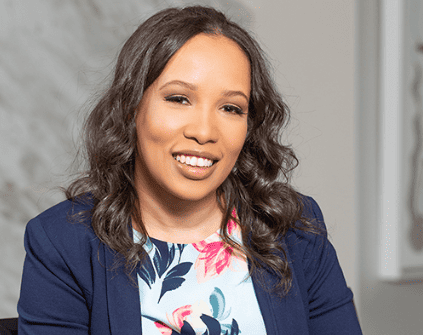The Financial Mail’s Green Economy Conference which took place as a hybrid event on Thursday, 24 August 2023 under the theme ‘clean and green – powering a sustainability fuelled future’ brought together a variety of industry experts who delivered insightful views on the role that corporates play in a green economy.
Robyn Vilakazi, CFO of the Energy and Water Sector Education and Training Authority (EWSETA) participated in the first of two panel discussions. The panel, titled ‘Towards a greener tomorrow – pioneering the green economy’ was hosted by Zinathi Qguma. Vilakazi was joined by representatives from Schneider Electric, CF Africa, and Sanlam Investments. A key focus of the discussion was how corporates achieve profitability within the context of practicing environmental responsibility.
Vilakazi illustrated her point with the example of South Africa’s hydrogen economy, noting its potential to position the nation as a key player in the global hydrogen energy supply chain. She underlined the necessity of integrating skills development from the outset of planning processes, rather than treating it as an afterthought. She said: “We are seeing major shifts in the advancement of skills development and its impact on how the green economy can impact our economy.”
An important takeaway from the panel was the contrast in planning approaches between the public and private sectors. Vilakazi noted, “In the public sector, an emphasis on perfect planning can lead to missed immediate opportunities. Flexibility and adaptability are crucial to meet challenges effectively. “The panel agreed on the importance of an integrated and bold plan to address the challenges faced in South Africa’s new energy landscape, but very specifically the role of skills in any planning processes. Vilakazi highlighted the importance of skills development at the outset of developing plans as opposed to being an ‘add on’ later.
The subject of a just energy transition and the need for the country’s move towards a renewable energy future that is just and equitable was highlighted in the conversation.
“Changes are not happening overnight, which in itself contributes to the just energy transition,” emphasised Vilakazi “We cannot hold back for fear of the harm it will cause.”
In response to this, the panel agreed that sustainable employment in the green economy remains non-negotiable. To achieve this, skilling and reskilling are key to ensure that workers in this environment are employable, the private sector also has an important role to play in skills development.
The robust discussion turned to the critical role of collaboration between various sector stakeholders to navigate the complexities of a changing energy environment. Vilakazi agrees: “From a skills development perspective, the name of the game is collaboration, and we cannot possibly work in silos.” EWSETA has successfully partnered with other SETAs, higher education institutions and business to advance skills gaps in the transforming energy landscape.
This opening discussion set the scene for the second-panel discussion titled ‘The road to energy security – bridging international borders.” The role of skills development in its many forms for the country to successfully navigate what is a challenging road to energy security, was supported by the panellists and the discussion which followed with the live audience.
The consensus remained clear: Skills development stands as a linchpin in steering the nation through the intricate challenges of achieving energy security.
In summary, EWSETA’s contribution to the Green Economy Conference enriched the discourse on sustainable practices within the corporate sphere. The event underscored the growing importance of skillful manoeuvring in the transition toward a greener, more economically robust future.















